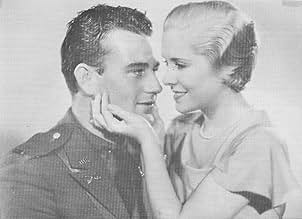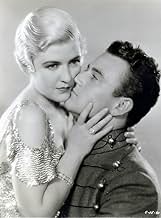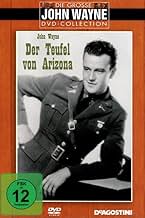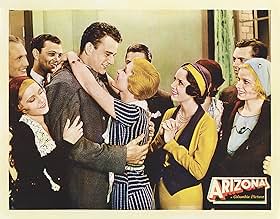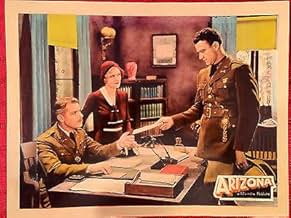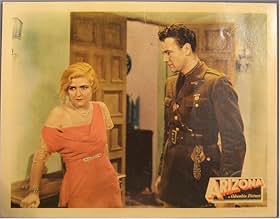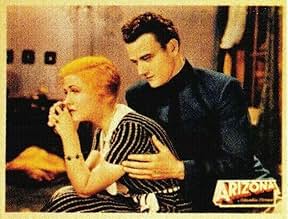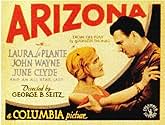Ajouter une intrigue dans votre langueBob refuses to marry his girlfriend and leaves her. She marries his close friend out of revenge.Bob refuses to marry his girlfriend and leaves her. She marries his close friend out of revenge.Bob refuses to marry his girlfriend and leaves her. She marries his close friend out of revenge.
- Réalisation
- Scénario
- Casting principal
Nina Quartero
- Conchita
- (as Nena Quartaro)
Jack Cheatham
- Army Football Coach
- (non crédité)
Hugh Cummings
- Hank
- (non crédité)
Susan Fleming
- Dot
- (non crédité)
Geneva Mitchell
- Auctioneer
- (non crédité)
Adrian Morris
- Officer
- (non crédité)
Loretta Sayers
- Peggy
- (non crédité)
Charles Sellon
- Officer
- (non crédité)
Avis à la une
I suppose this is what they used to call a "woman's picture." Laura LaPlante, a fetching, if gnomish blonde, plays Evelyn Palmer, a New York girl (what she does for a living is never revealed) who's been dallying with dashing West Point cadet Bob Denton, played robotically by a very young & handsome John Wayne. When she is dumped unceremoniously before Bob's graduation, Evelyn woos & eventually marries his mentor, Colonel Bonham, played by Forrest Stanley more like a stuffed-shirt British army officer than an American who's spent years in Arizona. The big complication is that, once the newlywed Bonhams relocate to Arizona, Denton shows up for duty &, despite Evelyn's triumphant attitude toward him, Denton takes a fancy to Evelyn's sister, Bonnie, who's the cutest flapper I've seen in ages.
This plot, made today, might have a bit more nastiness in that; it's as close to a "Cruel Intentions" as you're going to get in 1931. That Bob & Evelyn are having a sexual relationship is implied, of course, & it's amusing how, later in the picture, every time someone's about to say it, that person is interrupted or hushed. More than that, though I saw this on the Starz Western channel, it's more like your average sophisticated thirties melodrama than a western. The cigarettes are in boxes, gowns are worn to dinner, & the Colonel's house in Arizona is strictly Long Island.
The film features some amusing stock footage of an Army-Navy football game, as well as military maneuvers. But without giving anything away, the film unwinds & then winds up in a pretty cliched manner. For John Wayne fans, it's bound to be extremely disappointing, but for those of us who are intrigued by the early days of Hollywood, good & bad, it's not such a bad way to spend an hour. But it was way too silly to be moving, & it's by the numbers mix-up plot never really generates any suspense.
This plot, made today, might have a bit more nastiness in that; it's as close to a "Cruel Intentions" as you're going to get in 1931. That Bob & Evelyn are having a sexual relationship is implied, of course, & it's amusing how, later in the picture, every time someone's about to say it, that person is interrupted or hushed. More than that, though I saw this on the Starz Western channel, it's more like your average sophisticated thirties melodrama than a western. The cigarettes are in boxes, gowns are worn to dinner, & the Colonel's house in Arizona is strictly Long Island.
The film features some amusing stock footage of an Army-Navy football game, as well as military maneuvers. But without giving anything away, the film unwinds & then winds up in a pretty cliched manner. For John Wayne fans, it's bound to be extremely disappointing, but for those of us who are intrigued by the early days of Hollywood, good & bad, it's not such a bad way to spend an hour. But it was way too silly to be moving, & it's by the numbers mix-up plot never really generates any suspense.
Certainly not one of John Wayne's worst films, as one reviewer proclaims, but among his worst performances. After his initial starring role in "The Big Trail" in 1930, Wayne found himself at Columbia and turned in this wooden acting role in "Arizona" along with other pictures and was eventually fired by Harry Cohn. Soon Wayne found himself on poverty row, starring in "His Private Secretary" for Showmen's Pictures in 1933 and a series of westerns for Lone Star Productions released by Monogram Pictures in 1934. His climb back to being a top Hollywood star would take a few years. This film is a cultural significance since it has been released on a DVD set entitled "Columbia Pictures - Pre-Code Collection" along with four other films made in 1931-1932, starring Barbara Stanwyck, Jean Harlow, and Carole Lombard.
An American drama; A story about an American army lieutenant whose former girlfriend marries his commanding officer out of revenge causing complications down the line. This pre-code melodrama is a stagebound production about false accusation and romantic shenanigans. It contrives a plot about a mix-up but it contains holes at almost every turn, never really generating any suspense. The main characters are written as scoundrels without many redeeming features and it is too silly to be moving. June Clyde is likeable as the excitable younger sister full of energy and life. John Wayne wilts despite his alacrity.
John Wayne stars as a West Point cadet and star football player named Bob. All the ladies lust after him, but he only has eyes for Evelyn (Laura La Plante). However, as his graduation nears, he breaks things off, much to Evelyn's dismay. Some time later, the now Lieutenant Bob is stationed in Arizona where he is reunited with his mentor Colonel Frank (Forrest Stanley). Things get awkward when Lt. Bob meets Col. Frank's new bride...Evelyn! Lt. Bob does the reasonable thing and immediately starts dating Evelyn's younger sister Bonnie (June Clyde), which for some reason upsets Evelyn.
This instantly forgettable programmer has a cornball script only matched by its uninspired performances. Wayne, looking lean and bewildered, appears to be searching for the nearest exit. La Plante gets a big "Acting" scene near the end that doesn't do her any favors. Highlights include Nina Quartero's brief role as the drunken Conchita, and Wayne and Clyde singing a song about cookies.
Its pedigree as an early oddity starring John Wayne searching for a screen persona and stardom in a modern dress role and a film that doesn't help him do either of those things is a reason to watch this.
This instantly forgettable programmer has a cornball script only matched by its uninspired performances. Wayne, looking lean and bewildered, appears to be searching for the nearest exit. La Plante gets a big "Acting" scene near the end that doesn't do her any favors. Highlights include Nina Quartero's brief role as the drunken Conchita, and Wayne and Clyde singing a song about cookies.
Its pedigree as an early oddity starring John Wayne searching for a screen persona and stardom in a modern dress role and a film that doesn't help him do either of those things is a reason to watch this.
Early in his career, when the Duke worked at Columbia Pictures, Harry Cohn tried him out in this romantic vehicle, for which he received second billing to Laura LaPlante, who plays a scorned Evelyn eventually getting her chance to make Bob pay for calling it quits. This mostly forgotten flick, not even listed in many film catalogs under Wayne's name, is best left that way, forgotten and unlisted. Still, as one of the first films that gave him significant billing, he holds his own against his equally forgettable cast mates. As a romantic actor, he fails to impress in his clinches with either of his lovers. It's obvious he had a long way to go to become a good actor although he never turned into a great one like the Gables and Stewarts and others then starting their careers. It's still of interest to watch the old football game and the cavalry drills in this picture, so it's not without its merits. Just don't expect much and you won't be disappointed. I'd recommend if for fans of the Duke, just to see how green he was back then. And the girls are pretty and the guys look nice in uniforms, so there are worse ways to pass an hour or so. Dale Roloff
Le saviez-vous
- AnecdotesThe film is known as "MEN ARE LIKE THAT" when it was shown (and advertised) in major, first-run release in New York City, yet somehow it is re titled "ARIZONA" almost immediately afterward. (New York Sun, 14 August 1931)
- ConnexionsVersion of Arizona (1913)
Meilleurs choix
Connectez-vous pour évaluer et suivre la liste de favoris afin de recevoir des recommandations personnalisées
Détails
- Durée
- 1h 10min(70 min)
- Couleur
Contribuer à cette page
Suggérer une modification ou ajouter du contenu manquant

